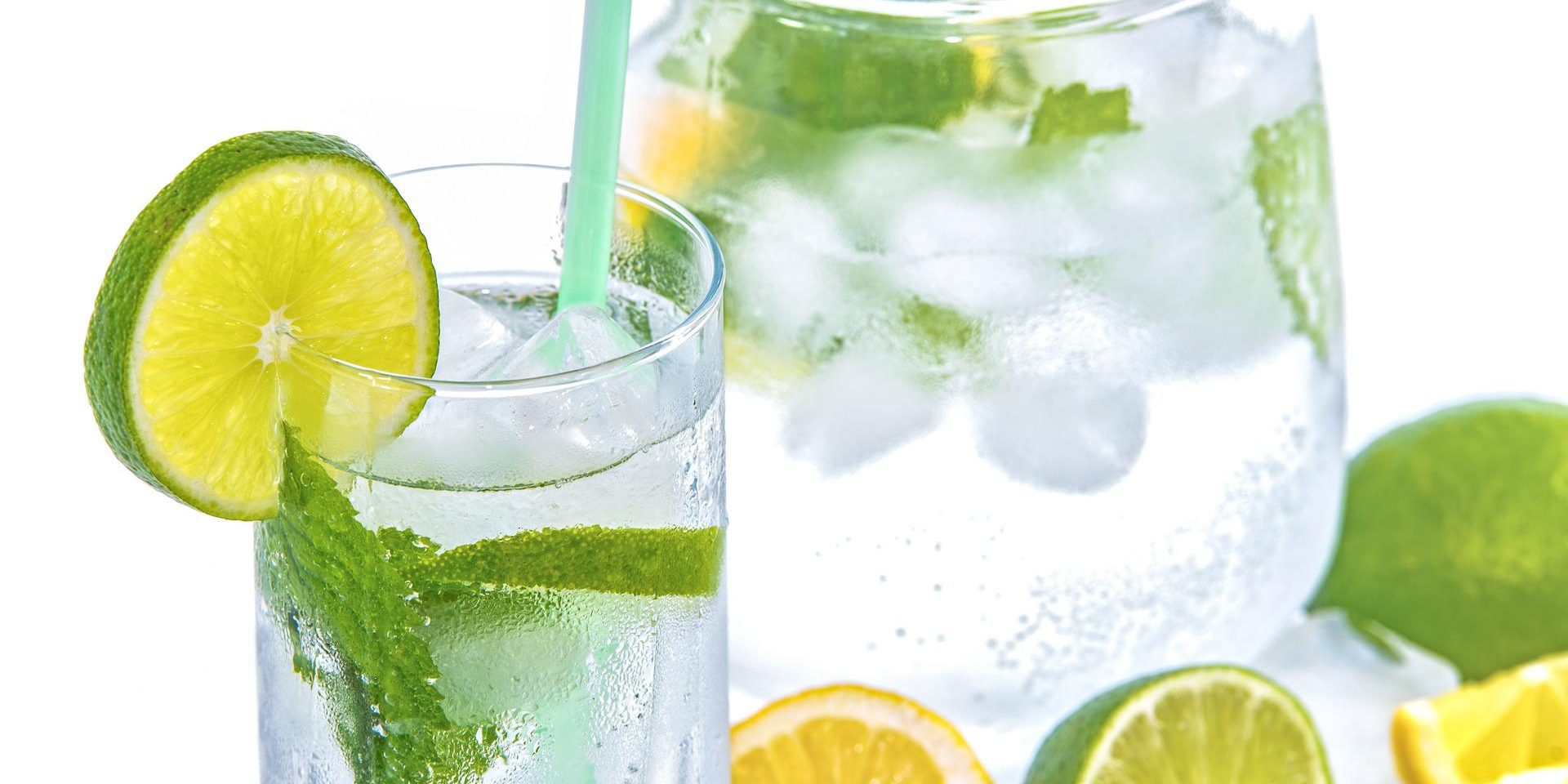Every living creature needs water to survive. Yet sweating, peeing, vomiting, or having diarrhea can cause a loss of fluid, further increasing your fluid needs, threatening your survival and in a complex physiological process, making you thirsty.
If you are thirsty, that is the most obvious sign you are dehydrated, meaning your body does not have enough fluid to function properly. Being dehydrated does not mean your body is losing water, it also means you are losing electrolytes, such as salt and potassium, which help your body breathe, move, talk, and do all the other things it needs to do to stay up and running.
Certain healthy conditions, including diabetes, can put you at an increased risk for dehydration. If you have been sweating too much due to heat or overexertion, throwing up or having diarrhea because of the flu of another acute illness, or urinating frequently, it is important to watch your fluid intake.
People who are especially vulnerable to losing fluid include those who are unable to quench their thirst because of disability or disease, those who are athletes, and those who are simply too young or too old to replace fluids on their own. Men who are middle-aged or elderly may also be at an increased risk of complications from dehydration. Over time the body becomes worse at detecting markers of dehydration, and without these signals, older adults may not realize they are dehydrated or take steps to rehydrate. Untreated dehydration can cause the heart rate to increase, straining your ticker.
- Constipation – being dehydrated will cause constipation because it means there is no fluid in your stool. That in turn means the stool is likely to be rough and hard and that means it is more likely to get stuck in the intestines where it can create a painful and highly uncomfortable blockage.
- Yellow Urine – If you want a quick and easy check you can perform to ascertain your hydration levels, then just look at the color of the urine. If it is very strong smelling and bright yellow or orange, then this shows that you are dehydrated, and the urine simply is not diluted enough by water.
- CFS – cfs or chronic fatigue syndrome in other words, if you are dehydrated then it is highly likely that you are going to feel tired and lethargic, and you might struggle to gain the motivation to engage in your usual tasks.
- Headache – one of the most common signs of dehydration is a headache. This can be distracting and painful, but it is even less pleasant once you know what is going on. Your brain contains a lot of fluid and when you are dehydrated you lose a lot of this fluid.
- Brain Fog – is that horrible condition that we cannot quite put our finger on. It causes us to feel distracted, to struggle to concentrate, and to struggle to feel motivated or inspired to engage in various activities. There are many causes of brain fog, but dehydration is a common one. This is due not only to the pain that a dehydration headache can cause and not only to the cfs – but also to the loss of certain neurotransmitters and interactions that require water to occur.
- Irritability – irritability is commonly associated with hunger, but it can also occur along with dehydration for many of the same reasons you feel tired and foggy. When you lose the blood supply to the brain and when you lose the crucial chemical interactions, you start to feel slower, and everything becomes more effort. This in turn can cause you to feel irritable and frustrated which can lead to you barking at people or giving up on tasks quickly.
- Insomnia – There are many reasons that dehydration can make it difficult to sleep. One is that you will have a headache. Another is that you may have cramps. Another is that your body needs fluid and so will wake you up in the small hours parched. Even when you are asleep, you will not be sleeping as heavily. This is all serious news because it could impair your performance the following day. You will be even more sluggish and tired, more prone to mood swings, and more prone to forgetfulness. All of this can make it hard for you to operate at your best and makes accidents more likely.
- Thirst – This is an obvious and straightforward symptom of dehydration that you should not overlook. Simply, when you are very dehydrated you will feel very thirsty. You will want to drink, and you might crave fluids. Listen to your body – it is telling you what it needs!
- Lack of Urination – We have already seen how very brightly colored urine can point to dehydration but so too can a lack of urination. When you urinate, this is your body’s way to expel unwanted liquids and certain soluble nutrients or things that the body could not utilize. You need fluids to do this though and when you are dehydrated you lose the ability.
- Cracking lips and hands – When you are dehydrated you will find that your skin starts to suffer. More Specifically, this often results in cracked hands and lips which can become painful. While you should certainly see this as a sign to get fluids as soon as possible, you can also use an external moisturizer or some Vaseline.
- Dry Eyes – Water is important in the cells. For example, we need water to create the various fluids in our body – including our tears. If you are very dehydrated, then you might notice your eyes feeling dried out or even itchy and they may appear red or bloodshot.
- Dry Mouth – Water is of course needed to create saliva and thus it should be no real surprise that you can also experience a very dry mouth if you are overly dehydrated. This can contribute to thirst, but it also generally leaves you feeling uncomfortable and might even be experienced as a dry throat.
- Bad Breath – Drink water not just for your sake but for the sake of your partner and your friends…. When you are dehydrated your breath will also smell a little funky. This is because your saliva contains a natural disinfectant to kill of bacteria in your mouth. When your saliva starts to run dry, the bacteria can thrive. If the problem is allowed to persist, then eventually it will cause bad teeth as well as you will not have the necessary antibacterial agents in your mouth to prevent plaque and other problems.
- Indigestion – Water is needed to create digestive enzymes in the stomach. These are what will break down the food in your diet and thereby help to absorb it into your system. Thus if you are not getting enough water then you will become more prone to indigestion.
- Cramp – Water in combination with electrolytes such as potassium and sodium help to carry signals from the brain to the muscles via the nerves. When you do not get enough water, you skew the ratio of those electrolytes to cause the muscles to cramp up resulting in excruciating pain. This often occurs at night and is most common in the feet and legs though it can occur at any time and in any part of the body. Drink more water and likewise try to get a good balance of electrolytes.
- Elevated Heartrate – You are likely to experience an elevated heart rate if you are dehydrated. This occurs because the blood pressure changes because of changes in the viscosity of the blood and the sheer volume. Your heart rate therefore increases, and your breathing increases too. This is enough to trigger a fight or flight response.
- UTIs – Dehydration increases the likelihood of developing UTIs and if you keep contacting them, you may want to consider drinking more water! The obvious reason for this is the change in the frequency and consistency of urination. This means that you end up with more urine in your system, more of which is going to be dense with bacteria. There is thus an increased risk of infection throughout the urinary tract. This is especially common for women but can affect men too.
- Difficulty losing weight – Dehydration will make it extremely hard for you to lose weight. This is because we need water for the metabolism to operate properly and when you take that away, you start to struggle to burn through calories. Not only that but if you are not drinking enough water then you can develop a puffy look. This is because your body will begin to hold on to more water since it is not coming through the system. Many people think that to combat this look it would make sense to drink less water but in fact, if you want to look toned and chiseled, the best option is to drink more water while consuming less salt.
When it comes to daily water intake, fixed rules are difficult to apply because it depends on so many variables, including your age, gender, whether you are pregnant or breast feeding, and whether you have any underlying medical conditions. It is advised that women get 2.7 liter per day and 3.7 liters per day for men. You can reach this amount by consuming food and fluids.
- Always keep your water bottle handy – if it is right next to you, you will get into the habit of sipping it without even realizing it.
- Try spicing up plain water – if you do not love plain water, jazz it up by adding a splash of fruit juice or chunks of fresh or frozen fruit. Or try naturally flavored, calorie-free seltzers, the fizz and fruit flavor make them more appealing than plain water.
- Turn to sugar free herbal tea or coffee – sip fruity iced teas during the day or cozy up with a mug of hot peppermint or chamomile tea at night – they all count toward your daily fluid goal. If your beverage of choice is coffee rather than tea, that works too.
- Swap your packaged snacks for fresh options – swap dry snacks, like chips, pretzels, and crackers which have a low water content with refreshing munchies, like fresh or frozen fruit, yogurt, healthy smoothies, celery with peanut butter and cut veggies with hummus.
- Pile on the produce – aim to make half your plate produce at meals. All those vegetable and fruit servings will supply water as well as a hearty dose of vitamins, minerals, and fiber. In fact, some fruits and vegetables are more than 90 percent water including cantaloupe, strawberries, cucumbers, celery, lettuce and leafy greens, zucchini, tomatoes, and bell peppers.
- Sip more fluid during meals – sipping water with meals will help you eat more slowly, pace your eating and of course stay hydrated. Drinking water 30 minutes before eating may furthermore help with weight loss.
You can usually manage your mild dehydration by increasing your fluid intake. However, it is important to note that severe dehydration can be life threatening and should be treated by a healthcare professional.
Request and appointment by texting 850-629-0345 or call our office today at 850-309-0356.

